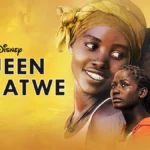Biopics offer a unique lens into the lives of influential figures and pivotal moments in history. They not only entertain but also educate, providing insights into the experiences that have shaped our world. Here’s a list of 20 biographical films that you need to watch to deepen your understanding of history.
1. 12 Years a Slave (2013)
Based on the autobiography of Solomon Northup, 12 Years a Slave tells the harrowing story of a free Black man kidnapped and sold into slavery. The film powerfully depicts the brutality of slavery in the United States and the resilience of the human spirit, earning critical acclaim and multiple Academy Awards.
2. Schindler’s List (1993)
Steven Spielberg’s Schindler’s List chronicles the true story of Oskar Schindler, a German businessman who saved over a thousand Polish Jews during the Holocaust. The film’s stark portrayal of the atrocities of World War II and the Holocaust serves as a poignant reminder of the impact of individual courage in the face of evil.
3. The Imitation Game (2014)
This biopic focuses on Alan Turing, a mathematician and cryptanalyst who played a crucial role in deciphering the German Enigma code during World War II. The Imitation Game sheds light on Turing’s contributions to computer science and the societal challenges he faced due to his sexuality.
4. A Beautiful Mind (2001)
A Beautiful Mind tells the story of John Nash, a brilliant mathematician who struggles with schizophrenia. The film explores Nash’s groundbreaking work in game theory and his journey toward understanding and accepting his mental illness, highlighting the complexities of genius and mental health.
5. Selma (2014)
Focusing on the civil rights movement, Selma chronicles the historic 1965 march from Selma to Montgomery led by Martin Luther King Jr. The film highlights the struggles and triumphs of the movement, emphasizing the importance of nonviolent protest and the fight for voting rights in America.
6. The Theory of Everything (2014)
This biopic chronicles the life of physicist Stephen Hawking, focusing on his groundbreaking work in cosmology and his battle with ALS. The Theory of Everything explores themes of love, perseverance, and the quest for understanding the universe.
7. Hidden Figures (2016)
Hidden Figures tells the untold story of the Black women mathematicians who played a vital role in NASA during the space race. The film highlights the challenges they faced due to both gender and racial discrimination, showcasing their contributions to America’s achievements in space exploration.
8. The Social Network (2010)
This film chronicles the founding of Facebook and the tumultuous relationships that developed among its creators, particularly Mark Zuckerberg. The Social Network offers insights into the rise of social media and its impact on personal and societal interactions, making it relevant to understanding contemporary history.
9. Lincoln (2012)
Directed by Steven Spielberg, Lincoln focuses on President Abraham Lincoln’s efforts to pass the Thirteenth Amendment, which abolished slavery in the United States. The film provides a nuanced portrayal of Lincoln’s leadership during a critical time in American history.
10. Hotel Rwanda (2004)
Hotel Rwanda tells the true story of Paul Rusesabagina, a hotel manager who sheltered over a thousand Tutsi refugees during the Rwandan genocide. The film brings attention to the horrors of the genocide and the power of compassion amidst tragedy.
11. The King’s Speech (2010)
This film follows King George VI as he struggles with a speech impediment and seeks help from an unorthodox speech therapist. The King’s Speech not only explores personal challenges but also highlights the importance of effective leadership during World War II.
12. Erin Brockovich (2000)
Based on a true story, Erin Brockovich follows a legal assistant who uncovers a major environmental scandal involving the Pacific Gas and Electric Company. The film emphasizes the importance of grassroots activism and the impact of corporate negligence on communities.
13. The Pursuit of Happyness (2006)
The Pursuit of Happyness is based on the true story of Chris Gardner, a struggling salesman who becomes homeless while raising his young son. The film highlights themes of perseverance, hope, and the American dream, making it a relatable story of resilience against adversity.
14. Boys Don’t Cry (1999)
This film tells the story of Brandon Teena, a transgender man who was brutally murdered in Nebraska in 1993. Boys Don’t Cry explores issues of gender identity and violence, providing a critical perspective on LGBTQ+ rights and the challenges faced by transgender individuals.
15. The Butler (2013)
The Butler follows the life of Eugene Allen, an African American man who served as a White House butler for decades, witnessing key historical events and changes in American society. The film offers insights into the civil rights movement and the evolution of race relations in the United States.
16. Walk the Line (2005)
This biopic chronicles the life of legendary country singer Johnny Cash, focusing on his rise to fame and struggles with addiction. Walk the Line explores themes of love, redemption, and the impact of music on personal identity and cultural history.
17. The Founder (2016)
The Founder tells the story of Ray Kroc, the man who turned McDonald’s into a global franchise. The film explores themes of ambition, capitalism, and the complexities of business ethics, providing a critical look at the fast-food industry and its cultural implications.
18. Dunkirk (2017)
While not a traditional biopic, Dunkirk recounts the true events of the Dunkirk evacuation during World War II. The film captures the bravery and desperation of soldiers and civilians alike, illustrating a pivotal moment in history through a visceral cinematic experience.
19. The Aviator (2004)
The Aviator tells the story of Howard Hughes, an aviation pioneer and film director. The film explores Hughes’s groundbreaking contributions to aviation and his struggles with mental illness, providing a glimpse into the complexities of genius and fame.
20. Frida (2002)
This biopic explores the life of Mexican artist Frida Kahlo, highlighting her unique artistry and tumultuous personal life. Frida delves into themes of identity, gender, and cultural heritage, making it an essential watch for understanding the intersection of art and politics.
These 20 biopics offer a compelling look at significant figures and events that have shaped history. Through their powerful storytelling, they provide valuable insights into the human experience, inviting audiences to reflect on the past and its relevance to our lives today. Whether exploring social justice, innovation, or personal struggles, these films remind us of the importance of understanding our history to appreciate the present and shape the future.











